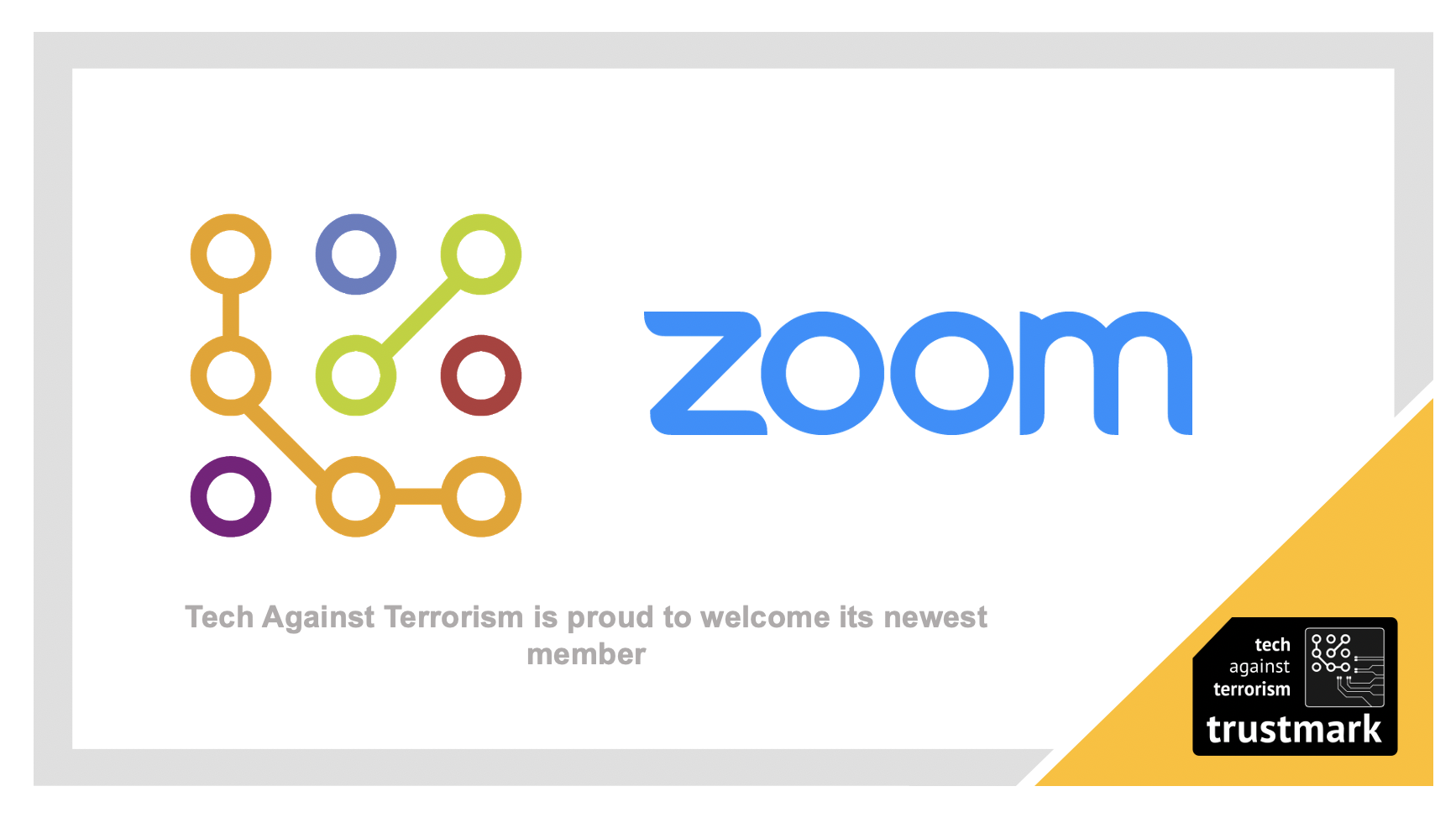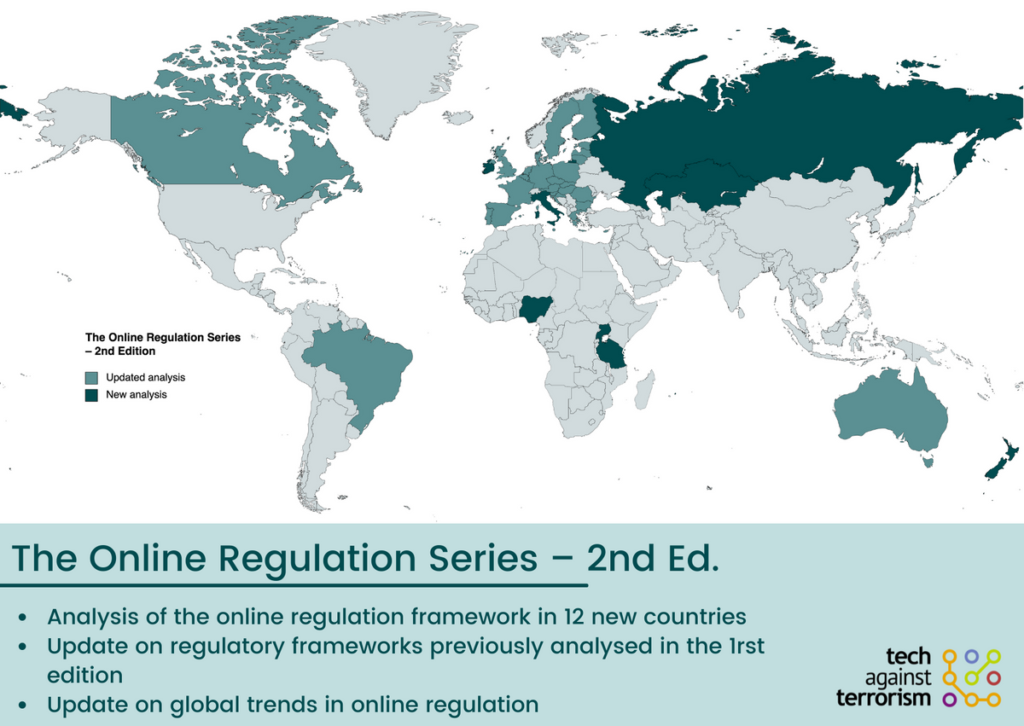Reader's Digest – 16 April 2021
Our weekly review of articles on terrorist and violent extremist use of the internet, counterterrorism, digital rights, and tech policy.
Webinar Alert
- We have opened registration for our upcoming webinar, “Countering Terrorist Use of Emerging Technologies: Assessing Risks of Terrorist Use of End-to-End-Encryption and Related Mitigation Strategies”, which will be held on 29 April 2021 5pm - 6pm BST. This webinar features as a part of our TAT & GIFCT E-Learning Webinar Series. Please register here.
Agenda
- Konstantinos Komaitis, Senior Director, Policy Development & Strategy, The Internet Society
- Gail Kent, Head of Messenger Policy, Facebook
- Marc Loebekken, Legal Counsel, ProtonMail
- Erin Saltman, Director of Programming, GIFCT
- Moderator: Maygane Janin, Senior Research Analyst, Tech Against Terrorism
Tech Against Terrorism Updates
- We are excited to announce that an updated version of the Knowledge Sharing Platform (KSP) will be re-launched to tech platforms soon. The KSP is a collection of interactive tools and resources designed to support the operational needs of smaller tech platforms. It is a “one stop shop” for companies to access practical resources to support their counterterrorism and transparency efforts. Stay tuned for announcements about the launch!
- This week, our Head of Policy & Research, Jacob Berntsson, presented at the International Parliamentary Conference on “Global Challenges and Threats in the Context of the COVID-19 Pandemic: Terrorism and Violent Extremism” during the joint OSCE PA-PAM Working Session on “Assessing the Terrorist Threat and Efforts to Prevent Violent Extremism."
Top Stories
- Ask.fm has published its first transparency report this week.
Tech Against Terrorism is proud to have supported Ask.fm’s in doing so. Transparency reporting is a core part of Tech Against Terrorism support for the tech sector, and all of our policy advice include recommendations to strengthen transparency and accountability. A commitment to transparency reporting is also one of our core membership criteria, and we support platforms in improving transparency reporting thought our mentorship programme.
- Discord announced this week that users who access the app through iOS will now face restrictions on adult content.
- As of this week, users on Facebook can appeal content to the Oversight Board which they want removed from Facebook and Instagram.
- The Facebook Oversight Board has additionally announced that the Board has upheld Facebook’s decision to remove specific content that violated the prohibition on posting caricatures of Black people in the form of blackface, as per their Hate Speech Community Standards.
- Twitter has unveiled its first Global Impact Report, providing an overview of the work they have done across environment, governance and social issues since it was founded.
- Twitter has also announced a new plan to conduct in-depth analysis and studies “to assess the existence of potential harms in the algorithms” they use.
On this topic, we have recently published a position paper on content personalisation and terrorist use of the internet, in which we argue that whilst algorithmic recommendation systems warrant scrutiny, policy-makers should prioritise other actions – including improving designation and supporting smaller platforms – in order to tackle terrorism online. Read our paper here.
- This week, MEP rapporteur Patryk Jaki recommended adopting the Terrorist Content Regulation to the European Parliament.
Tech Against Terrorism also wrote an article for VoxPol, raising concerns about the effectiveness of the regulation and the effect it may have on smaller tech companies.
- According to EURACTIV, as part of the draft regulation on a ‘European approach for artificial intelligence,’ the EU executive proposes to ban AI technologies that are used for “indiscriminate surveillance applied in a generalised manner to all natural persons without differentiation.”
- New Zealand has introduced a Counter-terrorism Legislation Bill to Parliament this week.
- In a letter to US Secretary of State Antony Blinken, key Democratic lawmaker, Elissa Slotkin argued that President Joe Biden’s should consider designating white supremacist groups overseas as foreign terrorists subject to U.S. government actions.
- The George Washington University Program on Extremism has released a report, “This is War”: Examining Military Experience Among the Capitol Hill Siege Participants.
Tech Policy
- India’s Strict Rules For Online Intermediaries Undermine Freedom of Expression: Katitza Rodriguez, Sasha Mathew, and Christoph Schmon shed light on India’s latest rules for online intermediaries, claiming that India has tightened government control over the “information ecosystem and what can be said online”. In doing so, the authors explain how India has created rules that seek to restrict social media companies and other content hosts from coming up with their own moderation policies, including those framed to comply with international human rights obligations. The rules, titled the “Intermediary Guidelines and Digital Media Ethics Code” (2021 Rules), create new regulations in regards to new categories of intermediaries, new “due diligence” obligations, strict turnaround for content removal, obligations for “significant social media intermediaries”, proactive monitoring, as well as on encryption and traceability requirements. The authors conclude that these rules will have “profound implications for the privacy and freedom of expression of Indian users”, as well as “restrict companies’ discretion in moderating their own platforms”. (Rodriguez, Mathew, Schmon, Electronic Frontier Foundation, 07.04.2021).
To read more about online regulation in India, please see our blog post from the Online Regulation Series here.
Counterterrorism
- Exploring the Gender Dimensions of CVE Online: Aleksandra Dier argues that it is “crucial for CVE responses to more meaningfully incorporate gender perspectives and address structural gender in equality as an essential part of prevention”. In doing so, Dier explores how IS provides a prime example of the use and exploitation of gendered grievances and vulnerabilities for terrorist purposes. Dier additionally analyses how, despite the “deeply misogynistic ideology of the extreme right”, women play an increasingly active role in these movements, including in promoting rhetoric and as active supporters and proponents of their agenda. Dier then discusses the impact of the COVID-19 pandemic on violent extremist propaganda, recruitment, such as the increasing amount of misogynistic online content and hate speech directed at women. Dier concludes with proposed solutions for taking the gender dimensions of violent extremism more seriously, such as by ensuring better monitoring, research and analysis of the distinct ways in which terrorist groups appeal to men and women online, systematically collecting sex-disaggregated data and addressing underlying patterns of structural gender inequality. (Dier, Observer Research Foundation, 14.04.2021).
Islamist Terrorism
- Women at the Heart of Boko Haram and Katiba Macina: Ella Jeannine Abatan writes about how, according to research conducted by the Institute for Security Studies, women play a complex and nuanced role in violent extremism in Mali and Niger. Abatan reveals that interviews with women associated with Boko Haram in Niger’s Diffa region and Katiba Macina in Mali’s Mopti and Ségou regions uncover how women help ensure these groups’ survival and facilitate extremists’ integration into communities as well as actively contribute to their on-the ground operations. Abatan concludes that as Mali is currently preparing to revise its national policy for preventing and combating violent extremism and terrorism, and Niger is finalising its national strategy to prevent radicalisation and violent extremism, women’s experiences with these groups should be taken into account. (Abatan, Institute for Security Studies, 13.04.2021).
For any questions, please get in touch via:
contact@techagainstterrorism.org
- News (239)
- Counterterrorism (54)
- Analysis (52)
- Terrorism (39)
- Online Regulation (38)
- Violent Extremist (36)
- Regulation (33)
- Tech Responses (33)
- Europe (31)
- Government Regulation (27)
- Academia (25)
- GIFCT (22)
- UK (22)
- Press Release (21)
- Reports (21)
- US (20)
- USA (19)
- Guides (17)
- Law (16)
- UN (15)
- Asia (11)
- ISIS (11)
- Workshop (11)
- Presentation (10)
- MENA (9)
- Fintech (6)
- Threat Intelligence (5)
- Webinar (5)
- Propaganda (3)
- Region (3)
- Submissions (3)
- Generative AI (1)
- Op-ed (1)


